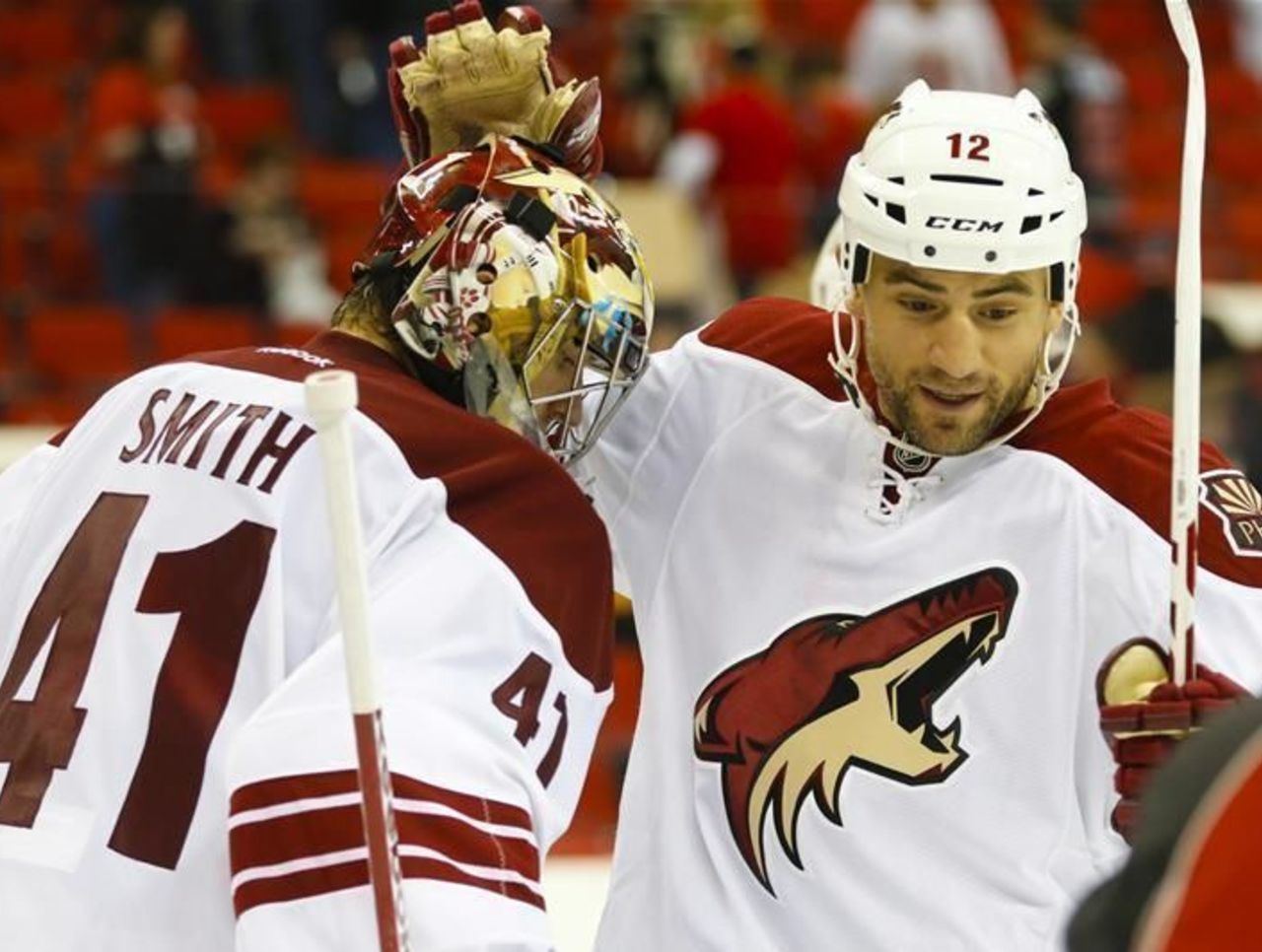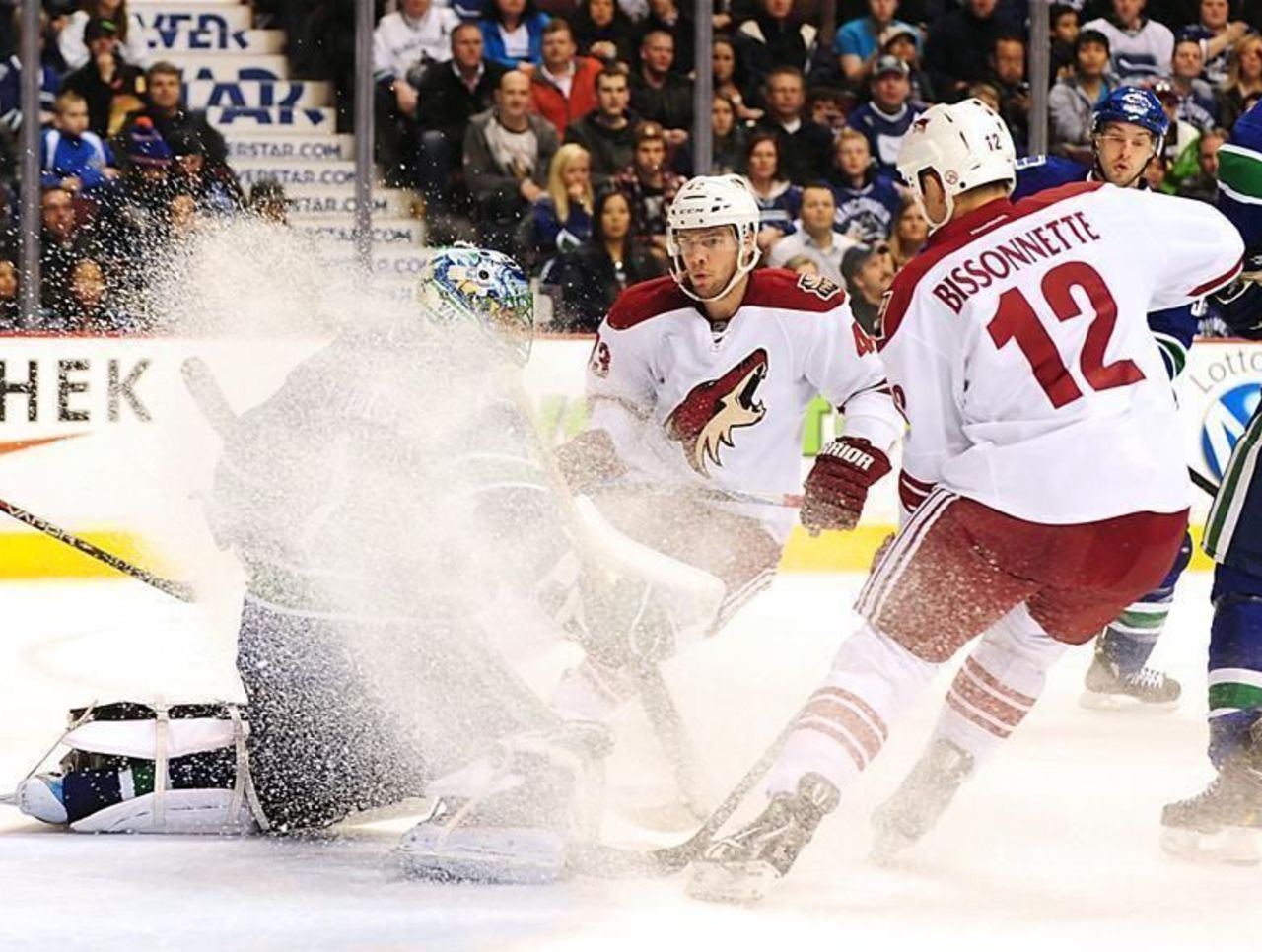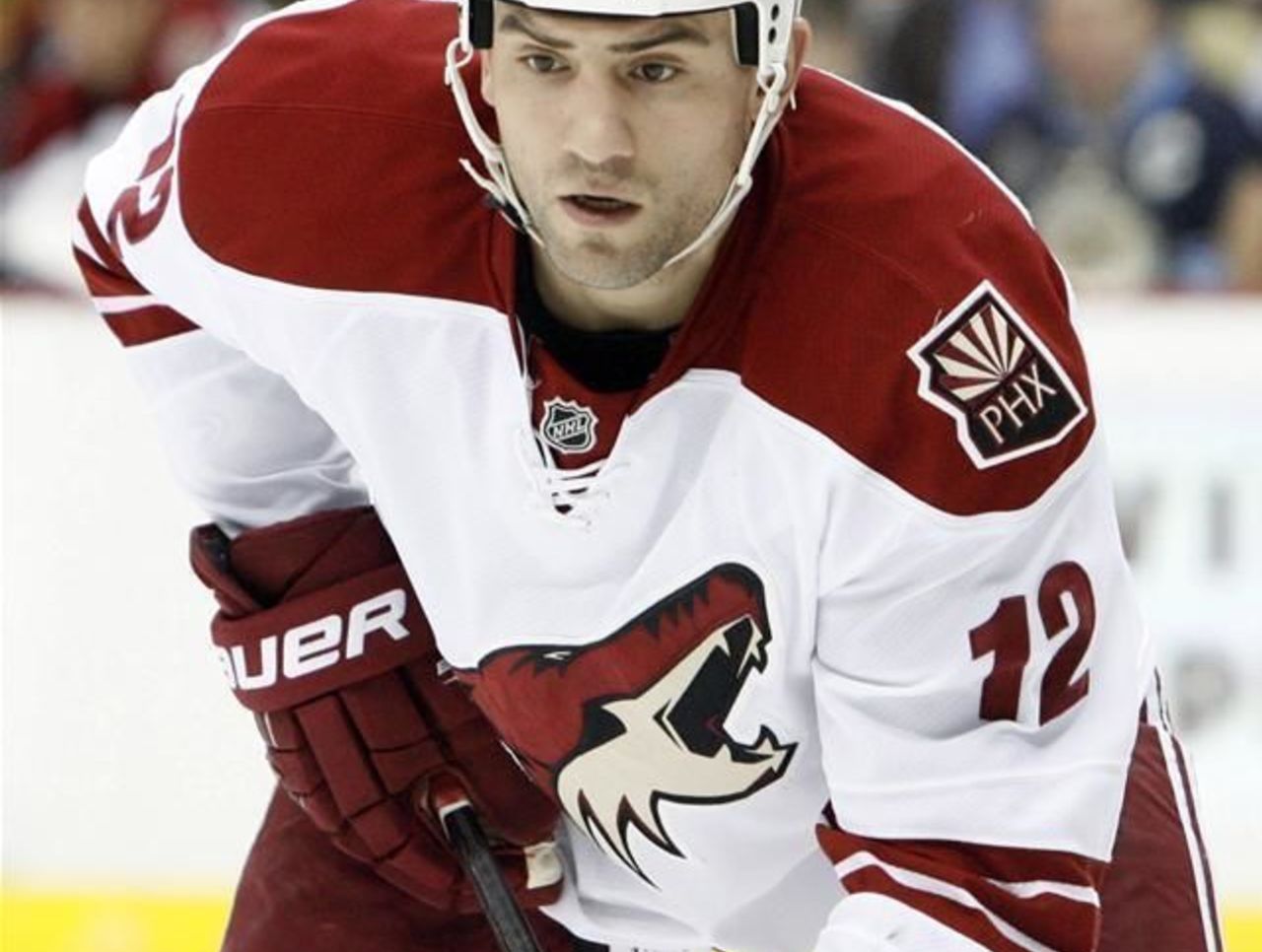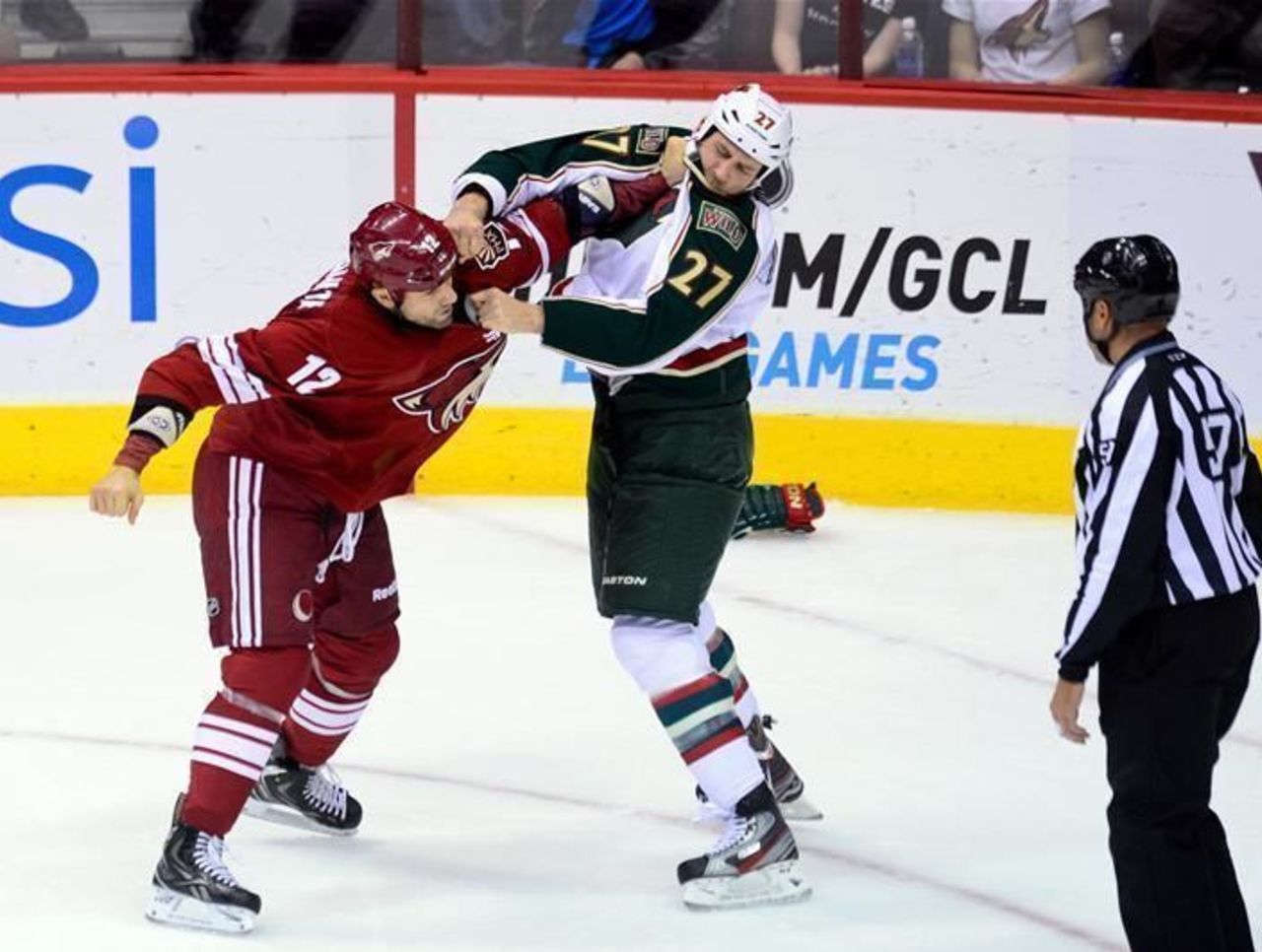5 Questions with Paul Bissonnette

5 Questions is a series that will run periodically throughout the year featuring some of hockey's most interesting personalities.
Today's "5 Questions" were thrown to Paul Bissonnette, the six-foot-three, 220-pound power forward who spent parts of six seasons in the NHL, largely with the Arizona Coyotes.
This year, the 29-year-old has spent time with both Portland and Manchester of the American League.
Also worth noting is that @BizNasty2point0 has carved out a niche for himself in the hockey world: He has a personality, and more than that, it's one he lets the public see. Players like that are almost guaranteed a job somewhere in the game when they finally decide to hang 'em up, though Bissonnette is nowhere near that yet.
I reached out to Paul to chat a little bit about his year so far in the A, what he has learned from Twitter and more.
And so, here we go ... 5 Questions with Paul Bissonnette.
How has the mental battle been after returning to the American League after parts of six seasons in the NHL? Was it tough to get up for games in the early going?
The mental battle returning to the AHL after six seasons in the NHL wasn't that hard. I was excited. I mean, besides the paychecks, I was excited to have a chance to get some playing time. I went to Portland to start and never really felt comfortable there. The guys were great. Something was just off. I got released from them and the same day signed with Manchester, L.A.'s farm team. From the minute I've been here, I've felt at home. Awesome bunch of guys, great coaching staff and A+ organization. Confidence is everything and I've earned and been given it in Manchester. Getting up for games is easy for me. I always get nervous. When the guys are playing for a coach they like and respect each night, it's amazing the effort he'll get.
What difference do you find separates NHL players from AHLers? A lot of people say the speed isn’t that much different, so there’s gotta be something.

I'd say the biggest difference from NHL to AHL is execution, especially from the top-six forwards on every NHL team. Those low-percentage plays get made more. Even the little things, wall plays, passing, picking up bad passes. I spent a lot of time watching in the NHL, whether it was from the middle of the bench or the press box. Every game, I was amazed by the small details in the games of the superstars that make them who they are. It's like they are robots. Muscle memory through the roof.
As far as speed goes, the only thing that's faster is the puck movement, not necessarily the speed at which guys skate.
Do you feel like you’ve been given a fair shot at all your stops or do you believe that, given more opportunity, you’ve had more to give in some places?

Do I think I've been given a fair shot? Yes. I'm very thankful for getting the opportunity to play in the NHL. I'm a borderline NHLer. Always have been. (Coyotes general manager) Don Maloney and (coach) Dave Tippett were great to me. Tippett is an awesome coach. Studies the game like crazy. He put me in every situation to succeed. Take my numbers from last year for example. He knew what I was. I wouldn't start many defensive zone draws, always matched up against comparable talent. He never put me in situations where I could hurt the team. He was good to me.
Did I want more opportunity? Of course. But I think my positive attitude around the room and my ability to have an unselfish, team-first mentality is what kept me in the league for almost six years. I think I'll work my way back up, though. Putting the work in was never an issue for me.
What have you learned from Twitter over the years? I may be mistaken here, but I feel like you’re less … out there than before.

Awww. Twitter. I've slowed down on Twitter. I guess when you get older, you care less and less what people who don't matter think of you. That comment is based off the amount of negativity I would receive. And my main focus during the season is hockey. Most days I don't have the energy to argue with people online about why I suck at hockey. But I do love reading articles about current events and following updates on the NHL.
I read a quote not too long ago, "Cocaine is God's way of telling you you have too much money. Twitter is like that with spare time."
What percentage of your fights would you say are out of anger, as opposed to just being calculated decisions?

I don't fight a lot for myself. It's rare.
I'm very defensive of my teammates. There's nothing I'd rather do than stick up for one. When a teammate thanks me for stepping in on a guy that was trying to take advantage of them physically, it's better than scoring a goal.
I get defensive about fighting in hockey because I know it has a place in the game. I like the idea of it being narrowed down to no stage fighting, but it's hard for me to listen to people who have never felt the emotions that come with playing this game make comments about changes that they would never experience or be affected by. It's hard for me to defend it on paper because I can express myself better through talking than writing.
***
Previous 5 Questions